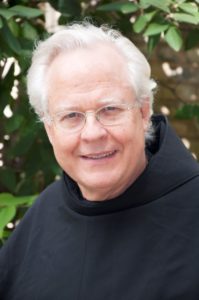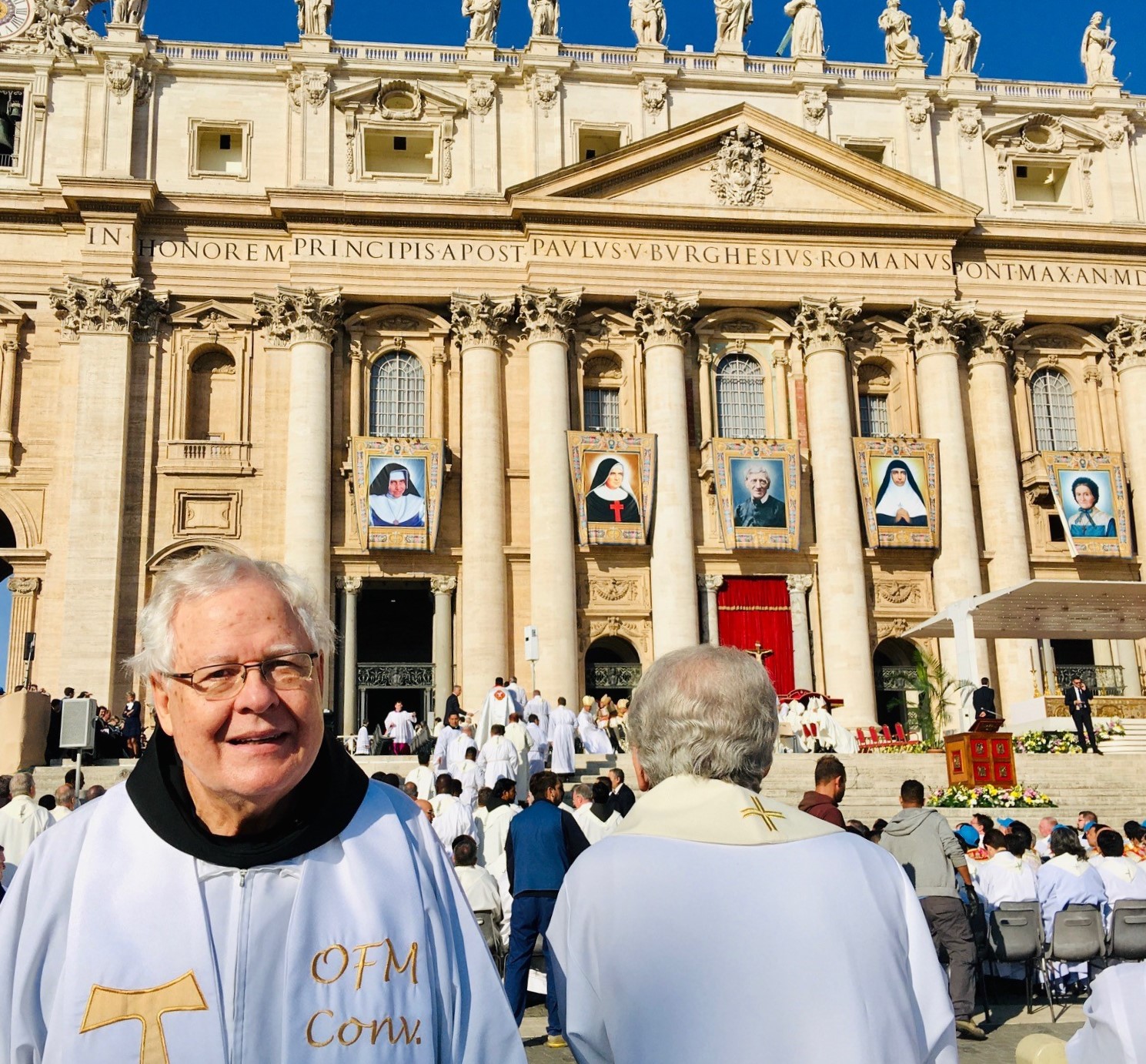Newman as a Volcanic Eruption
“Called to be Judgers not Calculating Machines”
At a moment of erosion, drift and assimilation of the Church in and into a secular modernity, it is a fair question to ask why I study and write about John Henry Newman. He matters massively for Christianity and the Catholic Church! Born in London on 21 February 1801, we ask: is the impact of his life at Oxford, struggles with rationalism, leadership in reform of the Anglican Church and heart rending going over to Rome, long gone? Does his Idea of a University matter for Notre Dame students I meet? I am firmly convinced the answer is “yes,” because Newman thought and taught in the wake of Aristotle to judge what a situation demands and not become a calculating machine. I do not intend to affirm this conviction of mine through a staged dialogue between Newman and myself. After all, you can read Newman independently. However, it is important for you to enter into dialogue with Newman, because you count far more than I do. In this venue, I have to be relatively brief with what I want to say. Second, in my somewhat formal analysis of Newman’s vast and complex writings which he has left us, my actual questioning may seem somewhat underdetermined, in order to prompt your questions and formulations. I have shown my hand—but you are free to disregard it . All that I will have imposed on you that may be helpful are three loci of questioning: scripture/theology, philosophy/phenomenology, and the relation between these fields.[1]
I approach Newman “with” and “after” my Franciscan mentor,[2] but not exclusively. He laid the groundwork for retrieval of the Franciscan School and other schools of thought, and the retrieval of scripture and theology, philosophy and phenomenology, according to the mind of Vatican II. Christianity is being assailed from without and hollowed out from within. What resources does the Church offer a person who is on the road to forming a conviction? Are they known? Are they beyond retrieval? Newman’s life is a lesson in the personal formation of conviction and judgment: “I cannot breathe with another man’s lungs,.” Knowledge is visible in Newman’s life as an Anglican resource, a Catholic resource, and how he aligns with Franciscan thought; a relation between forgetting and remembering forward as sanctioned by the Holy Spirit.
Normal religious believers have intuitions and arguments and draw from first principles. Like them, Newman needed consistency. A person can change his/her view on the expression of principles but not the principles themselves. Newman himself had to come to grips with this. He did not get a free pass. In February 1841, he wrote Tract 90, the last of the Tracts he began with Keble and Pusey as part of the Oxford (Tractarian) Movement. The Tracts aimed to advance arguments based on principles in order to remove ambiguities within the Church of England. Thirty-nine Articles[3] were drawn up early in the reign of Elizabeth I to induce Roman Catholics to subscribe to them; and, the Anglican Church was a branch of the Catholic Church with its formularies to be interpreted with the Catholic Fathers and Ancient Bishops. Tract 90 gave expression to Newman’s belief that the Thirty-nine Articles that pertained to justification could be interpreted in a Catholic sense. Keble and Pusey upheld Tract 90. Up to the end of his life, Newman was satisfied with the substance of the argument in Tract 90. The exception was the reasoning in Article 31 on Scripture, the sacraments, original sin and justification. Newman opposed some Roman doctrines such as purgatory, indulgences, honors paid to images and relics, the invocation of the saints, and transubstantiation at the Mass, as irreconcilable with primitive Catholic doctrine. He thought that just as Rome had exaggerations in those directions, the Anglican Church had exaggerations in the direction of Protestantism. Newman agreed that there were practical and popular errors on both sides and tried to see how far the Thirty-nine Articles could be reconciled with the decrees of the Council of Trent. Tract 90 argued that both Anglicans and Catholics belong to one Church.
In 1841, several events revealed Newman’s deepest convictions which Locke ’s religious epistemology had all but sanctioned. Locke’s philosophy was gaining in Oxford. Protestant England reacted against Tract 90. At Oxford, the Board of Heads of Houses condemned Newman. The Bishop of Oxford objected to the Tract but joined the bishops in general, who would not insist on its withdrawal or condemn it. The Liberals (Rationalists) at Oxford and Evangelicals were shocked, because the Articles were considered the bulwark of Protestantism. Newman insisted that the Articles were to be interpreted according to a great principle, i.e., not according to the meaning of the writers, but (as far as the wording would permit) according to the sense of the Catholic Church. For three years the bishops wanted the matter silenced. Newman insisted that Tract 90 was not to be withdrawn or condemned, nor the Tracts be stopped and opinions that they inculcated. No doctrine or principle was conceded by the Tractarians.
In the fall of 1841, Newman thought: “it will be necessary to re-assert Tract 90; else, it will seem, after these Bishop’s charges, as if it were silenced, which it has not been, nor do I intend it should be. I wish to keep quiet, but if Bishops speak, I will speak too. If the view were silenced, I could not remain in the Church, nor could many others; and therefore, since it is not silenced, I shall take care to show that it isn’t.” [4] Newman’s courage is evident in defense of the Tracts and imputing blame for conversions to Rome on those who oppose the Anglican principles of theology and ecclesiastical polity which the Tracts contain. If the rulers in England were to speak against the Tracts or not at all, and were to fail “to suffer the principles contained in them,” either the members would give up the principles or give up the Church. Newman mournfully prophesied that, should such a scenario unfold, many secessions to the Church of Rome would follow.
In November 1841, Newman protested the efforts of the Prussian Court and Archbishop of Canterbury to establish a Bishopric in Jerusalem to embrace both Lutheran and Calvinistic bodies in a manner very different from the Tractarian School. Later he wrote: the Jerusalem Bishopric had been “one of the greatest mercies. It brought me to the beginning of the end.”[5] “From the end of 1841, I was on my death-bed, as regards my membership with the Anglican Church, though at the time I became aware of it only by degrees.”[6] In September, 1843, he preached “The Parting of Friends,” and stepped away from the Anglican priesthood for lay communion. In December 1844, he set out to resolve the question about how doctrines develop. By 8 October 1845, he had literally written himself into the Roman Church.
Newman’s general and religious epistemology to counter religious rationalism from c. 1830 has been all-but-overlooked. My aim is to recall Bishop Butler’s influence on Newman, supplemented by my own observations, as something very useful to the ongoing apologetic for Christianity which is now vested in the Catholic Church.[7]
Fr. Edward J. Ondrako, OFM Conv., Univ. of Notre Dame, Remembering Forward # 3 eondrako@alumni.nd.edu
____________________________________________________
[1] Modeled on Cyril O’Regan’s analytic and pedagogic method at the Univ. of Notre Dame’s theology department.
[2] Mentor is in homage to Rev. Dr. Peter Damian Mary Fehlner, OFM Conv. (1931-2018); mentors, to a longer list.
[3] The difficulty for Newman with Article 31 was on justification. Compare to the Decrees of the Council of Trent.
[4] Apo., ch 3, M. Svaglic, ed. (1967), 131.
[5] Apo., ch 3, M. Svaglic, ed. (1967), 131-136.
[6] Apo., ch 4, M. Svaglic, ed. (1967), 137.
[7] In 1825, Newman read Bishop J. Butler, Analogy of Religion (1736), which saved him from his rationalist foray.
Fr. Edward J. Ondrako, OFM Conventual
Research Fellow Pontifical Faculty of St. Bonaventure, Rome
Visiting Scholar, McGrath Institute for Church Life
University of Notre Dame
February 21, 2022






